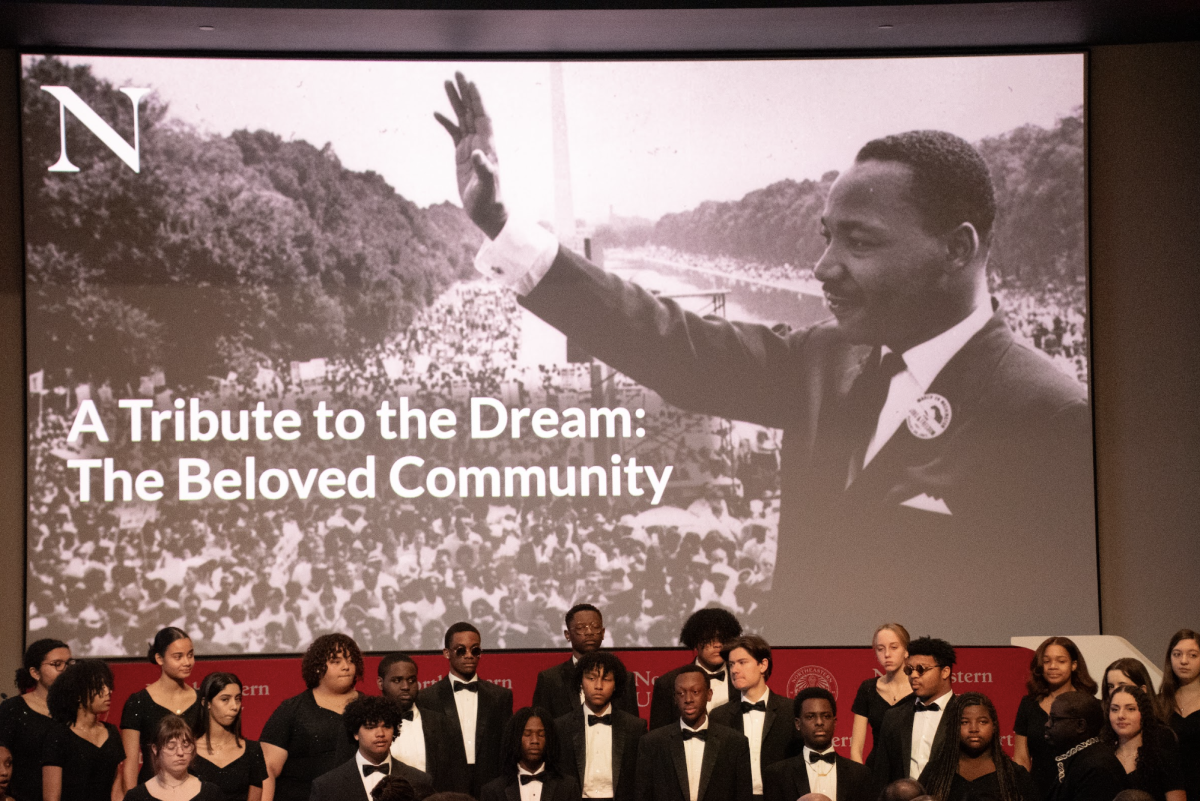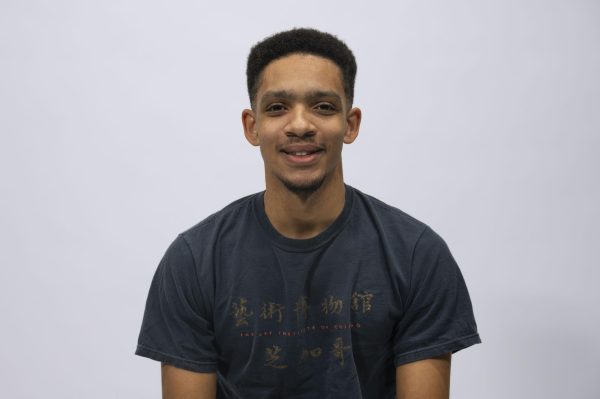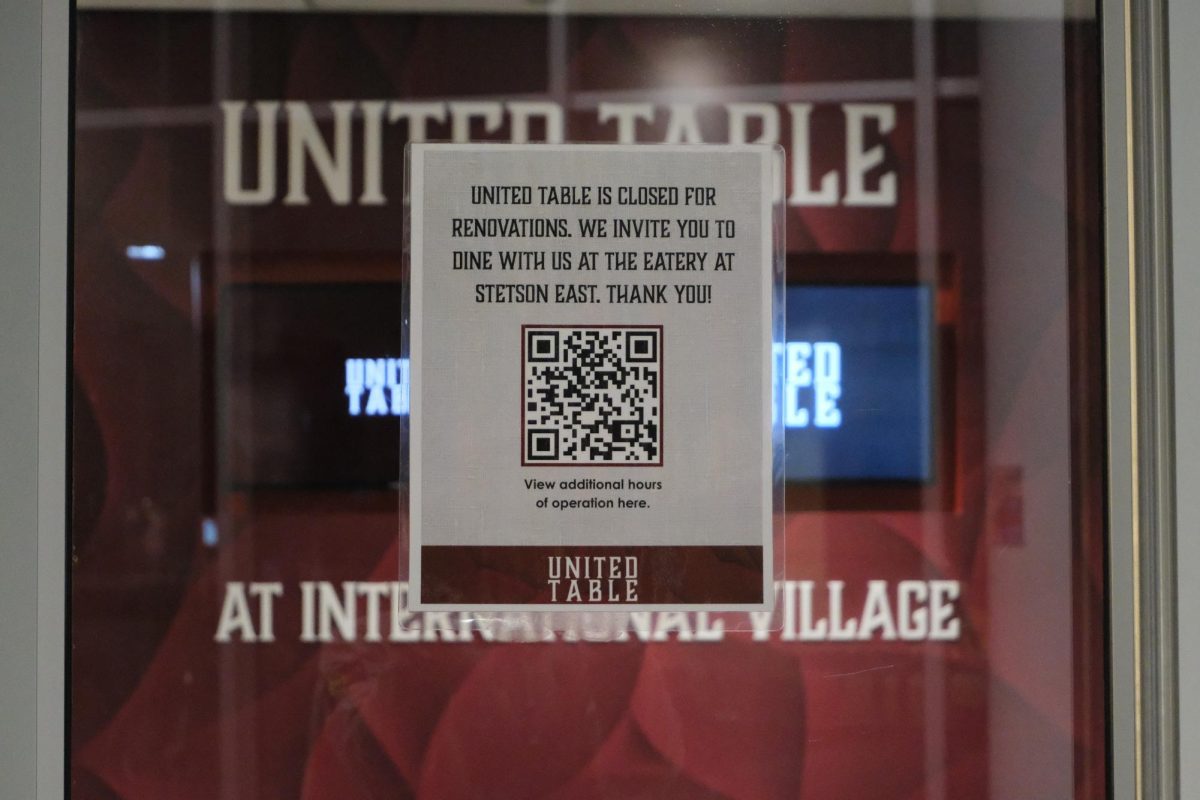Northeastern hosted its annual celebration honoring the life and legacy of Martin Luther King Jr. Jan. 16. The event, entitled “A Tribute to the Dream: ‘The Beloved Community,’” allowed speakers and attendees to take time to honor King and the impacts of his legacy — both large and small.
The event showcased a conversation with Massachusetts Attorney General Andrea Joy Campbell and journalism professor Dan Lothian, and was hosted by Ernest “EJ” Willingham — a Dr. Martin Luther King Jr. graduate fellow — and featured remarks from Northeastern President Joseph E. Aoun.
Azariah Baker, a graduate student studying media advocacy and a recipient of the MLK Graduate Fellowship, said she “dropped everything” to attend the event.
“I credit everything to Martin Luther King,” Baker said in an interview with The Huntington News. “As a woman of color, as a person of color in the United States, Martin Luther King has always been someone who was a model in my household, in my educational system [and] in my schools.”
In her discussion with Lothian, Campbell reflected on King’s influence in her own life, in particular a famous quote that, in part, inspired her decision to run for Boston City Council in 2015 and challenge a 32-year incumbent: “You don’t have to see the whole staircase, just take the first step.”
“What I realized is that when you take the step, others will come out of the woodwork, people you don’t even know, to support you,” she said to the audience in the Curry Student Center Ballroom.
Campbell, the first Black woman to hold statewide office in Massachusetts, spoke about how her experiences in politics are driven by her childhood as a Boston native.
“It was not a straight line or straight path to get to this seat,” said Campbell, who grew up in Roxbury and the South End. “I never take it for granted.”
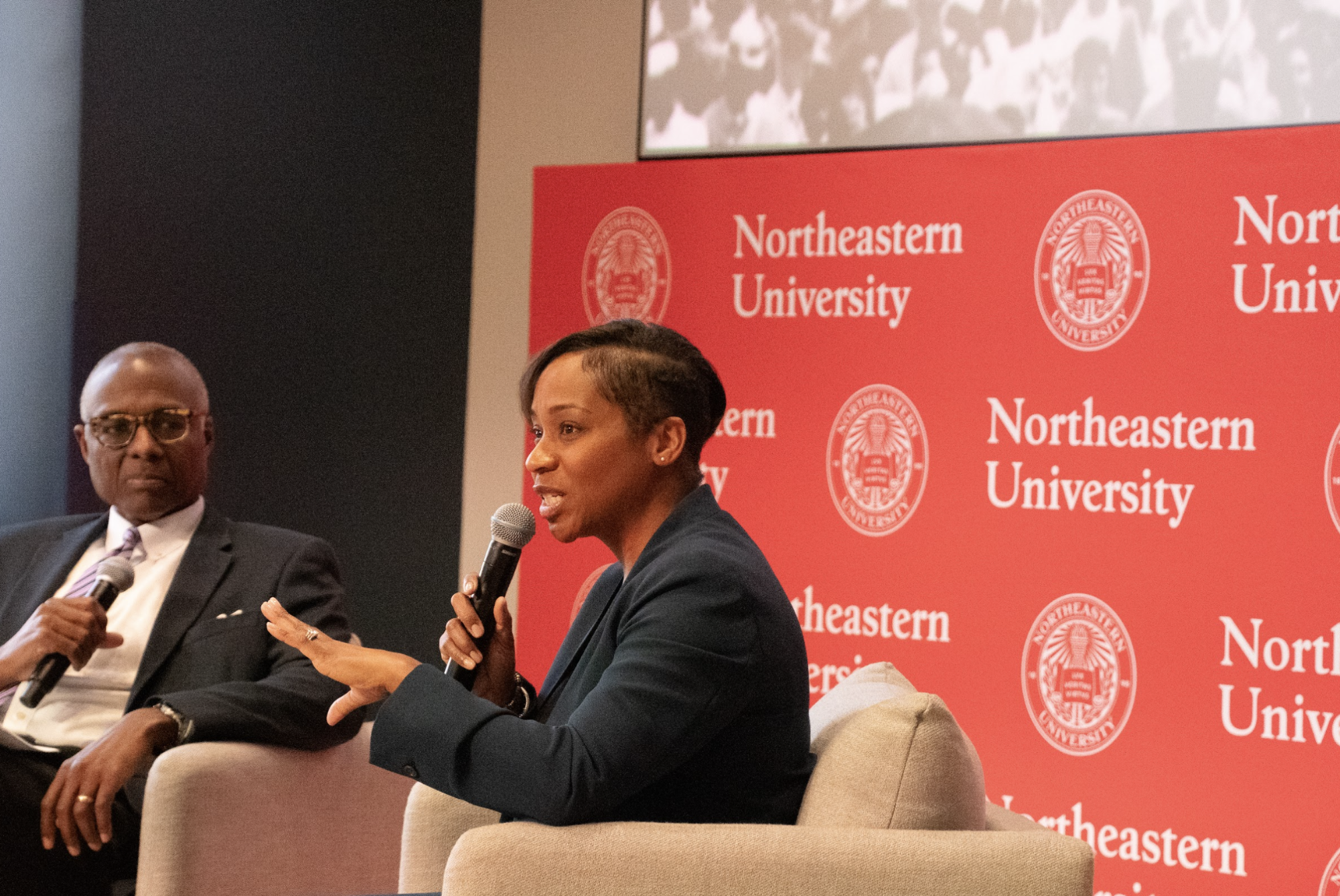
When Campbell was 8 years old, her mother died in a car accident on the way to visit her incarcerated father. She and her brothers then lived in “incredible instability,” bouncing between relatives’ homes and the foster care system. Her twin brother’s passing at 29 years old while in state custody as a pretrial detainee is what she attributes to kick starting her career in politics.
She described her goals of breaking systemic issues — poverty, criminalization and “mediocrity” — and ensuring the tools of the attorney general’s office provide people with the equal opportunities that King stood for.
“We have made progress. I wouldn’t be sitting here otherwise,” Campbell said. “There are folks who fought for me to run for office, my name to appear on the ballot, for women to be able to vote. … I never lose sight of that story.”
Jennifer Barrymore, Northeastern’s vice president for advancement resources and campaign operations and founder of the community group Village of Belonging, said she was particularly moved by Campbell’s story. Similar to Campbell, Barrymore’s mother passed away during her childhood, she said in an interview with The News.
Toward the end of the program, Aoun offered thanks to all the speakers and the community.
“I wasn’t born in the United States, but from a very early age, the message of Dr. King was important to us,” said Aoun, who hails from Lebanon. “It wasn’t only taught at school, but we saw it as liberation theology … It’s a global message and we’re a global university, so we have to continue to live it.”
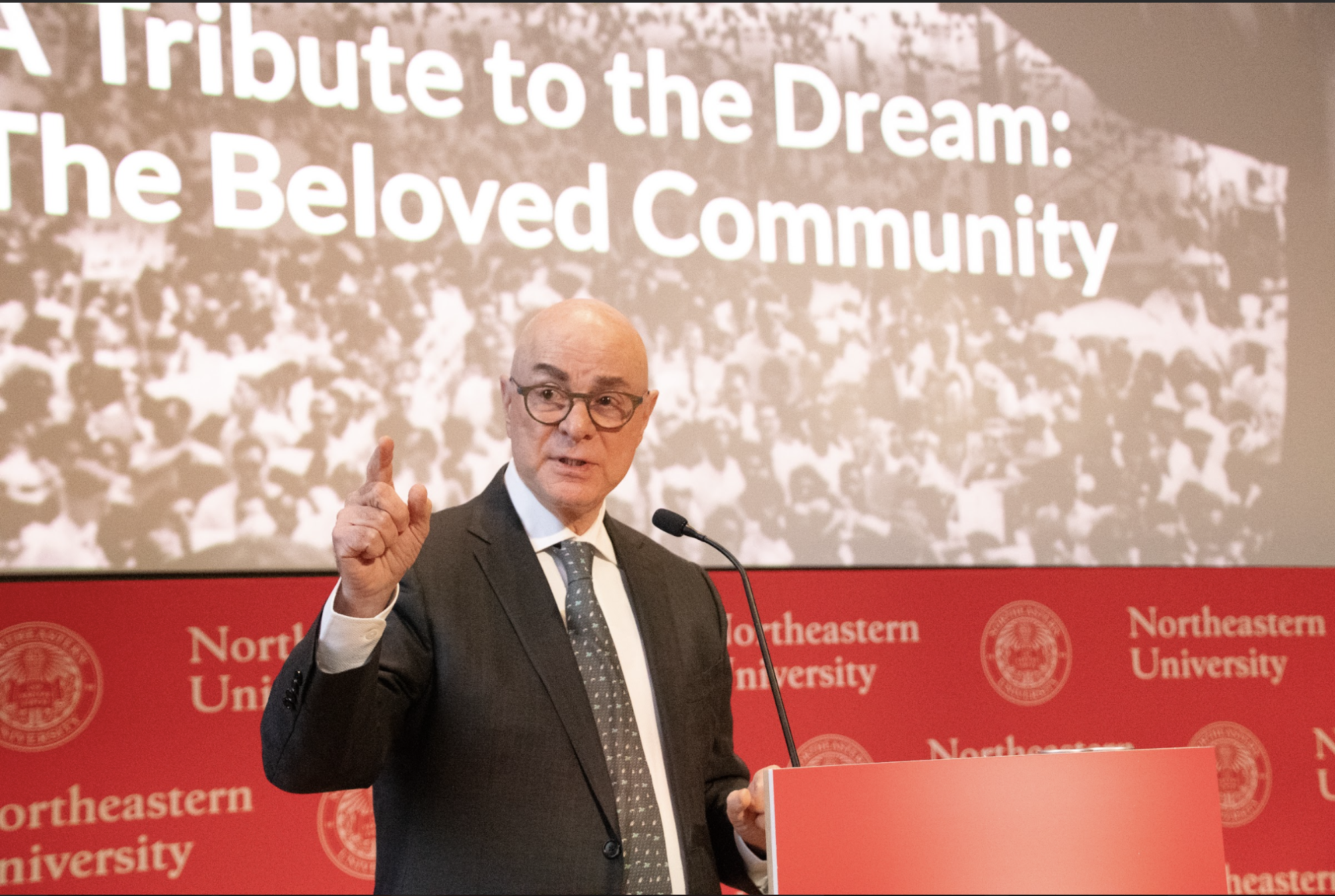
Students and speakers emphasized the importance of carrying on King’s legacy in Northeastern classrooms.
“Just being in spaces like this along with other leaders can help you connect with the community,” said Eiyannah Orphelia, a student pursuing a master’s in public health, in an interview. “The community has passed on the baton to us, and have allowed us to be here and get the education we need.”
In his remarks onstage, Willingham reflected upon his childhood growing up in Chicago, just “a few yards” from where King himself lived, advocating for housing justice. King’s work, Willingham said, “planted seeds of hope” within the community.
“If [King] had given up the first time he had an adversity, we wouldn’t be here today,” Willingham said in an interview with The News. “I wouldn’t have had the opportunity to speak at a predominantly white institution about the legacy of a Black man as a Black man … That’s so powerful to me.”
After a standing ovation of “There Is A Balm in Gilead,” a traditional spiritual hymn by the Boston Arts Academy’s Spiritual Ensemble, Willingham returned to the podium to conclude the program, addressing the group of high school singers filing out of the auditorium.
“It’s important to keep celebrating [King’s] legacy, because it keeps his vision alive,” Willingham told The News.



